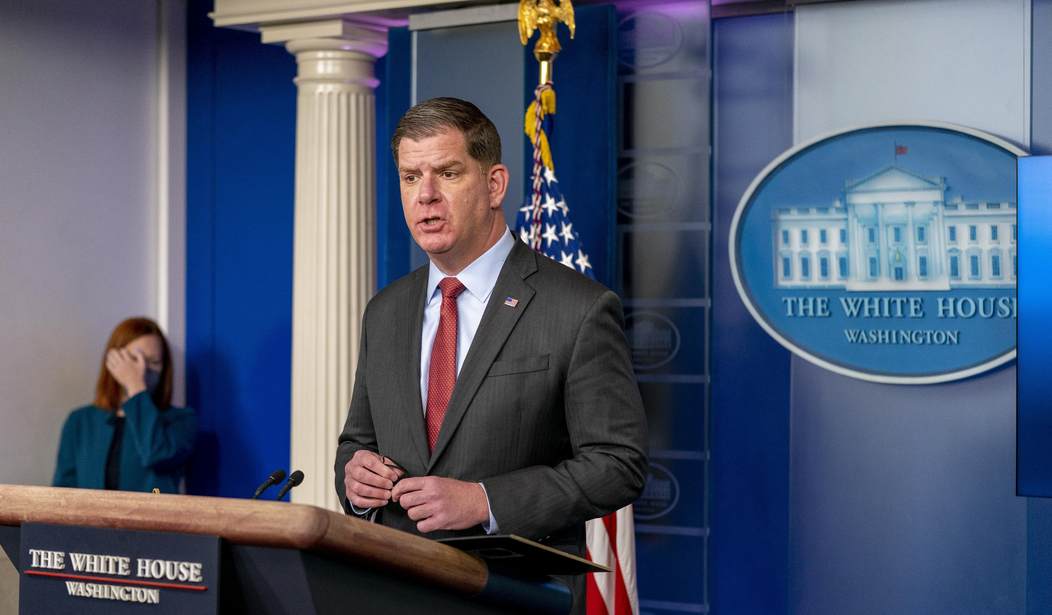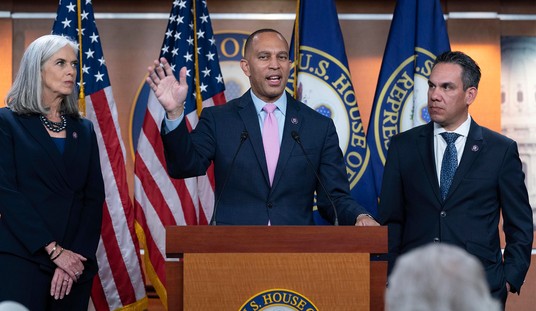The opinions expressed by contributors are their own and do not necessarily represent the views of RedState.com.
Labor Secretary Marty Walsh is attempting to make an end-run around employees’ right to remove a union from their workplace by rescinding the Election Protection Rule. Doing this will make it significantly harder for private sector employees to vote out an unwanted union that is violating their rights or threatening their livelihood.
On November 4, 2022, the National Labor Relations Board (NLRB) published a notice of proposed rulemaking (NPRM) seeking to rescind the “election protection” rule published on April 1, 2020, and to restore the prior protocols, including holding the processing of an election petition in abeyance if a union files an unfair labor practice (ULP) charge—often referred to as a “blocking charge”—alleging an employer’s interference with the election process. The proposed rule would also provide a mechanism for employees and/or competing labor organizations to challenge an employer’s voluntary recognition of a bargaining representative.
Despite rumors that Secy. Walsh may be flying the Biden administration coop for a private sector executive position with the NHL Players Association, Bloomberg Law alleges that the aggressive agenda the U.S. Department of Labor has set in motion, including the changes to the Independent Contractor Rule, and this rescission of election protections will continue with or without Walsh’s presence.
Whether Walsh would leave immediately if granted a job outside the administration is also still an open question, given the high-stakes labor negotiations at Los Angeles ports and his agency’s near completion of a highly anticipated rule on independent contractor status. The DOL is also expected to release a proposal to expand overtime protections to more workers by May, according to its regulatory agenda.
The National Right to Work Foundation (NWRF) is speaking out loudly against these changes, and has filed detailed comments against the elimination of the Election Protection Rule. It was the NRWF that advocated for the elimination of non-statutory policies that were used by union officials to stall and even grind to a halt employees’ ability to vote them out of a workplace. As the leading organization providing free legal aid to private-sector workers who face obstacles in decertifying an embedded union, NWRF offers a unique perspective on why these changes will be harmful to the employees’ ability to remove the offending union.
“The Foundation is uniquely situated to comment on and oppose these rules, as its staff attorneys have represented individual decertification petitioners in many of the leading cases in this area of the law,” the comments say.
“Foundation lawyers provide pro bono representation in a large percentage of the Board’s current decertification cases. To take just one recent snapshot, Foundation staff attorneys represent approximately 50 percent of the employees who filed decertification petitions in the month of December 2022.”
Companies like Latrobe Specialty Metals Company in Northwest Pennsylvania. NRWF assisted Kerry Hunsberger and her coworkers in removing the United Steelworkers (USW) officials from their facility in December.
A group of nurses at the Mayo Clinic Health System in Minnesota did the same. Erin Krulish filed the deauthorization petition on behalf of herself and her coworkers who wanted to remove the threat of the so-called “union security clause.” This clause authorized USW union bosses to fire nurses who refused to financially support union activities.
And these cases are increasing, not decreasing, which is probably why the National Labor Relations Board is seeking to claw back the rule. According to NRWF, the NLRB’s own data shows that a unionized private sector worker is more than twice as likely to be involved in a decertification effort as the average nonunion worker is to be involved in a unionization campaign. Another analysis shows decertification petitions were up 42 percent in 2022.
The National Labor Relations Act (“Act”) was designed to protect and work for the benefit of the employer and the employee, not the labor unions. As currently written, the Election Protection Rule properly protects an employee’s free choice to select or reject a union representative or overreaching union policies that threaten their freedom to work as they choose.
As NWRF defends,
The Board’s proposed rule is extra-statutory, unfair, and harmful to employee free choice. It should be withdrawn in its entirety, and the Election Protection Rule should remain in force.














Join the conversation as a VIP Member